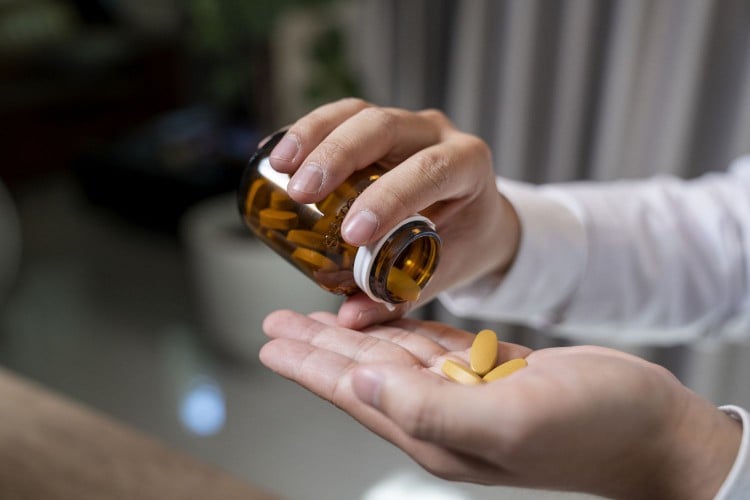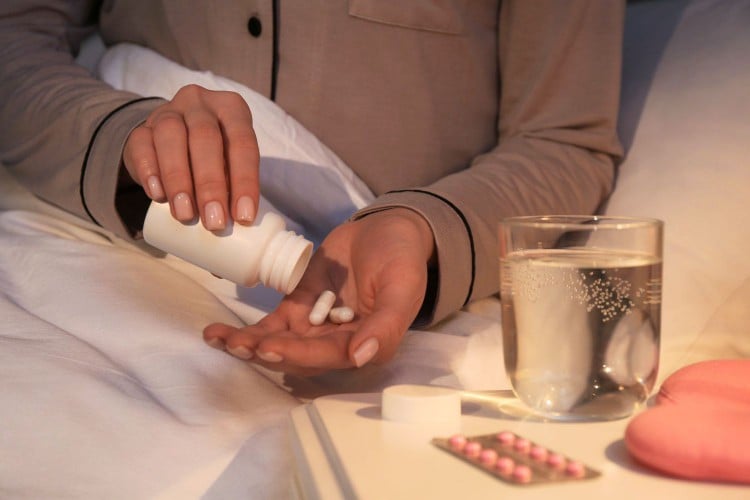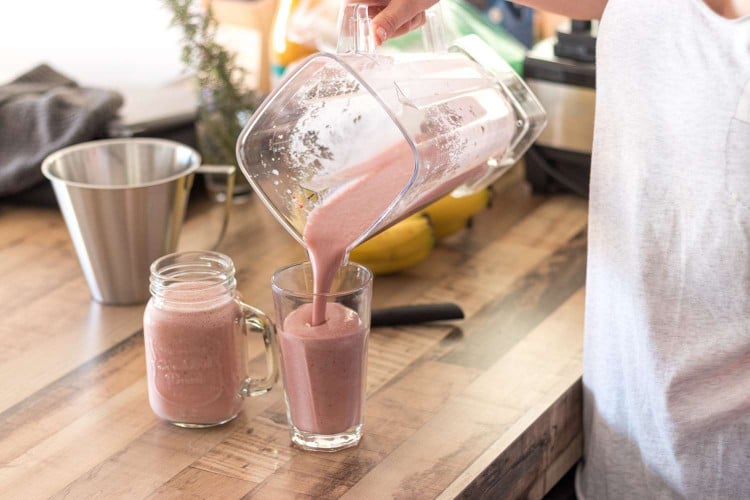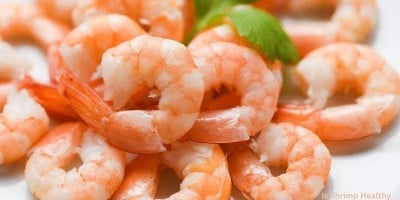- Mixing supplements can sometimes have adverse effects or lower the efficacy of one or both supplements.
- In the case of zinc and copper, too much zinc can cause a copper deficiency.
- Experts recommend people work to meet recommended zinc and copper levels through their diet, or work with a healthcare professional to establish how much of a certain supplement they should take.
Zinc and copper both have health benefits, but is it safe to take these supplements together?
With cold and flu season right around the corner, you might catch yourself reaching for the supplement drawer. Zinc, in particular, seems to be a fan favorite for fending off sickness.
Zinc is important year-round, even when you’re not worried about catching a cold. It plays a role in keeping your immune system healthy, helping wounds heal, and even helping you taste different foods.
However, taking too much zinc cause other health issues. Among these is a copper deficiency, which can cause a range of other health problems, like an increased risk of infection.
Doctors sometimes recommend people take both zinc and copper supplements, but that's not a hard and fast rule. Below, experts explain what to know before taking zinc and copper together, and how much you should be getting of each.

Getty Images / Thana Prasongsin
The Body Needs a Certain Amount of Zinc and Copper
Zinc and copper are both essential minerals. In addition to the already-stated benefits, zinc helps cells divide and make proteins. It also supports development and growth during pregnancy and infancy.
Adult men are supposed to get 11 milligrams of zinc a day, while adult women should aim for eight to nine milligrams.
Most people in the US get enough zinc through their diet, Pieter Cohen, MD, an associate professor of medicine at Harvard Medical School, told Health. “In America, [we have] fortified food,” Cohen said. Deficiencies are “more of an issue in other countries.”
Foods High in Zinc
Some foods that contain higher percentages of zinc include:
- Oysters
- Beef
- Breakfast cereals (fortified)
- Pumpkin seeds
- Pork
- Cheddar cheese
- Shrimp
- Lentils
Copper is also crucial for the body. It helps you stay energized and also supports your immune system. Copper also plays a role in healthy brain development.
Adult men and women should get 890 to 900 micrograms of copper each day.
Foods High in Copper
Some foods that contain higher percentages of zinc include:
- Beef liver
- Potatoes
- Shitake mushrooms
- Sunflower seeds
- Chickpeas
- Chocolate
Symptoms of Zinc and Copper Deficiencies
Though zinc deficiencies in the US are less common, it’s estimated that as much as 17% of the global population does not get enough zinc.
Because zinc is so crucial, a deficiency can affect many different body parts, including the skin and bones, as well as the reproductive, digestive, immune, and central nervous systems.
Demographics At Risk for Zinc Deficiency
Certain people are more at risk of being deficient in the mineral including:
- Vegans and vegetarians
- People with gastrointestinal issues, like inflammatory bowel disease (IBD)
- People who have had bariatric surgery
- Pregnant people
- People with alcohol use disorder
The symptoms of zinc deficiency depend on a person’s age.
In children, not getting enough zinc can result in diarrhea, alopecia, and delayed growth.
Some adults, however, may be more likely to notice that wounds take longer to heal. Changes in psychological and cognitive function can also occur in adults with a zinc deficiency.
Copper deficiencies affect up to one-fourth of Americans, according to a 2020 paper in the Journal of Trace Elements in Medicine and Biology. However, most people affected by it are infants who have a genetic abnormality or other health issues.
People with certain health conditions—including celiac disease and Menkes disease—are also more likely to have a copper deficiency and experience symptoms like anemia, osteoporosis or other bone defects, and connective tissue disorders.
Both copper and zinc deficiencies can be detected through blood samples.
Vitamin D Levels May Be Linked to Psoriasis Severity, New Research Shows
Taking Zinc and Copper Supplements Together
Most people don’t need to take copper or zinc supplements, Marie van der Merwe, PhD, coordinator of the applied physiology and nutrition doctoral program at the University of Memphis, told Health.
“Unless your doctor says you have issues that you need them for, I would not recommend that you take them,” she said.
Cohen explained that taking too much of any supplement can be dangerous. In the case of zinc, doing this can actually make you more likely to develop a copper deficiency.
“The same part of our gut absorbs [zinc and copper],” he said. “So they compete with each other. The problem with this is: If you take too many zinc supplements, it will interfere with your ability to absorb copper in the diet, and you could potentially get sick.”
This doesn’t mean you need copper supplements, Cohen clarified. “The solution is not [to] add copper to your zinc supplements; it’s to keep your zinc supplementation to within a normal daily dose."
Taking too much zinc can also indirectly affect your body’s ability to absorb iron—which plays a role in transferring oxygen from the lungs to other tissues—since copper is essential for iron absorption, van der Merwe said.
That said, taking too much of one of these supplements is more dangerous than the other.
“Our bodies can deal with a little too much zinc without much of a problem, but you can get too much copper,” Cohen said.
He noted a possible side effect of taking too many copper supplements—copper toxicity, a dangerous condition that can cause DNA damage.
Ultimately, taking an overabundance of either of these supplements is neither necessary or safe.
“If you eat a generally healthy diet, you’ll definitely have [zinc and copper] in your diet,” van der Merwe explained. “You don’t need huge amounts of them; you need very little.”
But, zinc and copper supplements—taken together or separately—may be recommended for a limited number of people with specific health conditions, she clarified. If your doctor recommends that you take either or both, they can help you determine how much to take and whether you should take them at a certain time of the day.
If you think you’re at risk of either a copper or zinc deficiency, you should speak with a healthcare provider about your symptoms, Cohen said. You shouldn’t simply start taking extra supplements, he added, as “extra minerals and vitamins can always have collateral effects.”








